Overview of Mild Traumatic Brain Injury (mTBI)
Mild Traumatic Brain Injury (mTBI), commonly known as a concussion, occurs when a sudden impact or jolt to the head or body disrupts normal brain function. While many individuals recover fully, a significant number experience persistent symptoms, leading to Postconcussion Syndrome (PCS).
mTBI is typically caused by events such as falls, sports injuries, or car accidents. Common symptoms include headaches, dizziness, confusion, blurred vision, and changes in sleep patterns. While most people recover within a few weeks, some continue to experience symptoms beyond the typical recovery period.
Post Concussion Syndrome (PCS)
PCS refers to the persistence of concussion symptoms for weeks or months after the initial injury. Symptoms encompass headaches, dizziness, cognitive dysfunction, mood swings, and sleep disturbances. Hyperbaric Oxygen Therapy (HBOT) has emerged as a potential treatment to alleviate these enduring symptoms.
Understanding Mild Traumatic Brain Injury (mTBI)
mTBI is defined as a disruption in brain function due to an external force, such as a blow or jolt to the head. Causes include falls, sports-related injuries, and vehicular accidents. Symptoms often involve headaches, confusion, lightheadedness, dizziness, blurred vision, and ringing in the ears. In some cases, mTBI symptoms persist, leading to PCS. These lingering symptoms can significantly impact daily life, affecting cognitive abilities, emotional well-being, and physical health.
HBOT involves breathing pure oxygen in a pressurized environment, which can enhance the body’s natural healing processes. Studies have shown that HBOT can lead to significant improvements in cognitive function and quality of life for individuals suffering from PCS.

Progression to Postconcussion Syndrome (PCS)
Postconcussion Syndrome (PCS) refers to the persistence of symptoms following a mild traumatic brain injury (mTBI). Common symptoms include headaches, dizziness, and difficulties with concentration and memory. These symptoms can last for weeks to months after the initial injury.
Factors Contributing to PCS
Several factors may increase the risk of developing PCS, including:
- Repeated Concussions: Sustaining multiple concussions can heighten the likelihood of prolonged symptoms.
- Pre-existing Conditions: Individuals with prior neurological or psychological conditions may be more susceptible.
- Psychological Stress: High levels of stress can exacerbate or prolong PCS symptoms.
Currently, treatment focuses on managing symptoms, highlighting the need for innovative approaches to effectively address PCS.
Treatment Options for mTBI and PCS
Rest and Conventional Therapies
Initial management of mild traumatic brain injury (mTBI) and postconcussion syndrome (PCS) typically involves:
- Rest: Allowing time for the brain to heal by minimizing physical and cognitive activities. citeturn0search8
- Gradual Return to Activity: Slowly reintroducing daily tasks and exercises as symptoms improve.
Therapies:
- Physical Therapy: Addresses balance and coordination issues.
- Occupational Therapy: Assists in resuming daily activities.
- Cognitive Therapy: Helps with memory, attention, and problem-solving challenges.
These approaches aim to alleviate symptoms and restore normal function over time.
Emerging Treatments for PCS: HBOT
One promising therapy for PCS is Hyperbaric Oxygen Therapy (HBOT). HBOT involves breathing pure oxygen in a pressurized chamber, which increases oxygen delivery to injured brain tissues, potentially promoting healing.
Studies have shown that HBOT at 1.5 atmospheres absolute (ATA) can lead to significant improvements in cognitive function and symptom relief for mTBI patients with PCS.
While traditional treatments remain foundational, therapies like HBOT offer additional avenues for recovery, especially for those with persistent symptoms.
The Benefits of HBOT for Persistent Postconcussion Syndrome

Reduction of Symptoms
Hyperbaric Oxygen Therapy (HBOT) has been shown to alleviate key symptoms of Persistent Postconcussion Syndrome (PCS), including:
- Chronic Headaches: Increased oxygen levels reduce inflammation and promote healing in affected brain tissues.
- Improved Sleep Patterns: HBOT can help regulate disrupted sleep cycles common in PCS patients.
- Boosted Cognitive Function: Enhanced oxygenation supports better memory, concentration, and overall brain activity.
Supporting Long-Term Recovery
HBOT contributes to sustainable recovery by:
- Reducing reliance on medications by addressing root causes rather than just symptoms.
- Enhancing brain health through improved circulation, reduced inflammation, and cell repair.
- Supporting neuroplasticity, which aids in long-term functional improvements.
Complementary to Traditional Treatments
HBOT can work synergistically with conventional treatments like physical and cognitive therapies, maximizing recovery outcomes for PCS patients. By supplementing these therapies, HBOT offers a holistic approach to healing.
Mild traumatic brain injury can sometimes lead to Persistent Postconcussion Syndrome, a condition with limited treatment options. HBOT offers hope by significantly improving symptoms like headaches, cognitive dysfunction, and sleep disturbances.
If you or someone you know is struggling with mTBI or PCS, consult with a healthcare professional about Hyperbaric Oxygen Therapy.
Contact Lakeshore Hyperbaric Center to learn how our expert team can help you on your recovery journey. We’re dedicated to providing personalized care and improving your quality of life.




